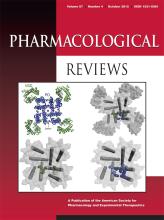Abstract
Although the earliest—rudimentary—attempts at exploiting the immune system for cancer therapy can be traced back to the late 18th Century, it was not until the past decade that cancer immunotherapeutics have truly entered mainstream clinical practice. Given their potential to stimulate both adaptive and innate antitumor immune responses, dendritic cells (DCs) have come under intense scrutiny in recent years as pharmacological tools for cancer immunotherapy. Conceptually, the clinical effectiveness of this form of active immunotherapy relies on the completion of three critical steps: 1) the DCs used as immunotherapeutic vehicles must properly activate the antitumor immune effector cells of the host, 2) these immune effector cells must be receptive to stimulation by the DCs and be competent to mediate their antitumor effects, which 3) requires overcoming the various immune-inhibitory mechanisms used by the tumor cells. In this review, following a brief overview of the pivotal milestones in the history of cancer immunotherapy, we will introduce the reader to the basic immunobiological and pharmacological principles of active cancer immunotherapy using DCs. We will then discuss how current research is trying to define the optimal parameters for each of the above steps to realize the full clinical potential of DC therapeutics. Given its high suitability for immune interventions, acute myeloid leukemia was chosen here to showcase the latest research trends driving the field of DC-based cancer immunotherapy.
Footnotes
This work was supported by grants of the Research Foundation Flanders (FWO Vlaanderen, Grant G039914N); the Methusalem program of the Flemish Government attributed to Goossens; the Belgian Foundation against Cancer (Stichting tegen Kanker); the Belgian Public Utility Foundation VOCATIO; and the Belgian Hercules Foundation. S.A. is a former PhD fellow of the Research Foundation Flanders and a former holder of an Emmanuel van der Schueren Fellowship granted by the Flemish League against Cancer (Vlaamse Liga tegen Kanker). S.A. was awarded a 2012 Endeavour Research Fellowship by the Department of Industry, Innovation, Science, Research and Tertiary Education of the Australian Government.
↵
 This article has supplemental material available at pharmrev.aspetjournals.org.
This article has supplemental material available at pharmrev.aspetjournals.org.
- Copyright © 2015 by The American Society for Pharmacology and Experimental Therapeutics
PharmRev articles become freely available 12 months after publication, and remain freely available for 5 years.Non-open access articles that fall outside this five year window are available only to institutional subscribers and current ASPET members, or through the article purchase feature at the bottom of the page.
|







